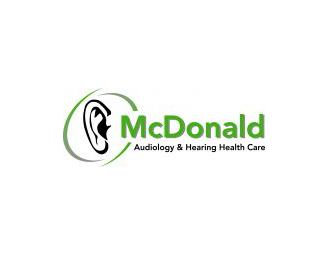The World Health Organization estimates that 1.1 billion people are at an increased risk for noise-induced hearing loss, caused by exposure to substantial sound levels from personal audio devices and very loud environments such as clubs, bars, concerts, and sporting events. An estimated 26 million Americans already suffer from the condition.
If noise-induced hearing loss occurs from direct exposure to extreme sound levels, then what is considered excessive? It turns out that any sound more than 85 decibels is potentially injurious, and regretfully, many of our daily activities expose us to sounds well above this limit. An MP3 player at maximum volume, for example, reaches 105 decibels, and law enforcement sirens can hit 130.
So is hearing loss an unavoidable consequence of our over-amplified life? Not if you make the right decisions, because it also happens that noise-induced hearing loss is 100% preventable.
Here are six ways you can save your hearing:
1. Use custom earplugs
The ideal way to prevent hearing loss is to stay away from loud noise completely. Of course, for most people that would entail abandoning their jobs and dropping their plans to see their favorite band perform live in concert.
But don’t worry, you don’t have to live like a hermit to salvage your hearing. If you’re exposed to loud noise at work, or if you plan on going to a concert, rather than avoiding the noise you can reduce its volume with earplugs. One option is to pick up a low cost pair of foam earplugs at the convenience store, realizing that they will likely create muffled sound. There is a better option.
Today, a variety of custom earplugs are obtainable that fit comfortably in the ear. Custom earplugs are molded to the curves of your ear for optimum comfort, and they include sophisticated electronics that decrease sound volume uniformly across frequencies so that music and speech can be heard clearly and naturally. Talk to your local hearing specialist for additional information.
2. Maintain a safe distance from the sound source
The inverse square law, as applied to sound, shows that as you double the distance from the source of sound the intensity of the sound declines by 75%. This law of physics may possibly save your hearing at a rock concert; instead of standing in the front row adjacent to the speaker, increase your distance as much as possible, managing the benefits of a good view versus a safe distance.
3. Take rest breaks for your ears
Hearing impairment from exposure to loud sound is influenced by on three factors:
- the sound level or intensity
- your distance from the sound source
- the amount of time you’re subjected to the sound
You can reduce the intensity of sound with earplugs, you can increase your distance from the sound source, and you can also lessen your collective exposure time by taking rest breaks from the sound. If you’re at a live concert or in a recording studio, for example, remember to give your ears routine breaks and time to recover.
4. Turn down the music – follow the 60/60 rule
If you often listen to music from a portable MP3 player, ensure that you keep the volume no higher that 60% of the maximum volume for no longer than 60 minutes each day. Higher volume and longer listening times raise the risk of long-term damage.
5. Purchase noise-canceling headphones
The 60/60 rule is very hard, if not impossible to adhere to in certain listening conditions. In the presence of loud background noise, like in a busy city, you have to turn up the volume on your MP3 player to hear the music over the surrounding noise.
The answer? Noise-cancelling headphones. These headphones will filter background sounds so that you can enjoy your music without breaching the 60/60 rule.
6. Schedule regular hearing exams
It’s never too soon or too late to schedule a hearing examination. Along with being able to diagnose current hearing loss, a hearing test can also establish a baseline for subsequent comparison.
Given that hearing loss develops slowly, it is difficult to notice. For the majority of people, the only way to know if hearing loss is present is to have a professional hearing test. But you shouldn’t wait until after the damage is done to schedule an appointment; prevention is the best medicine, and your local hearing specialist can offer tailored hearing protection solutions so that you can avoid hearing loss altogether.

